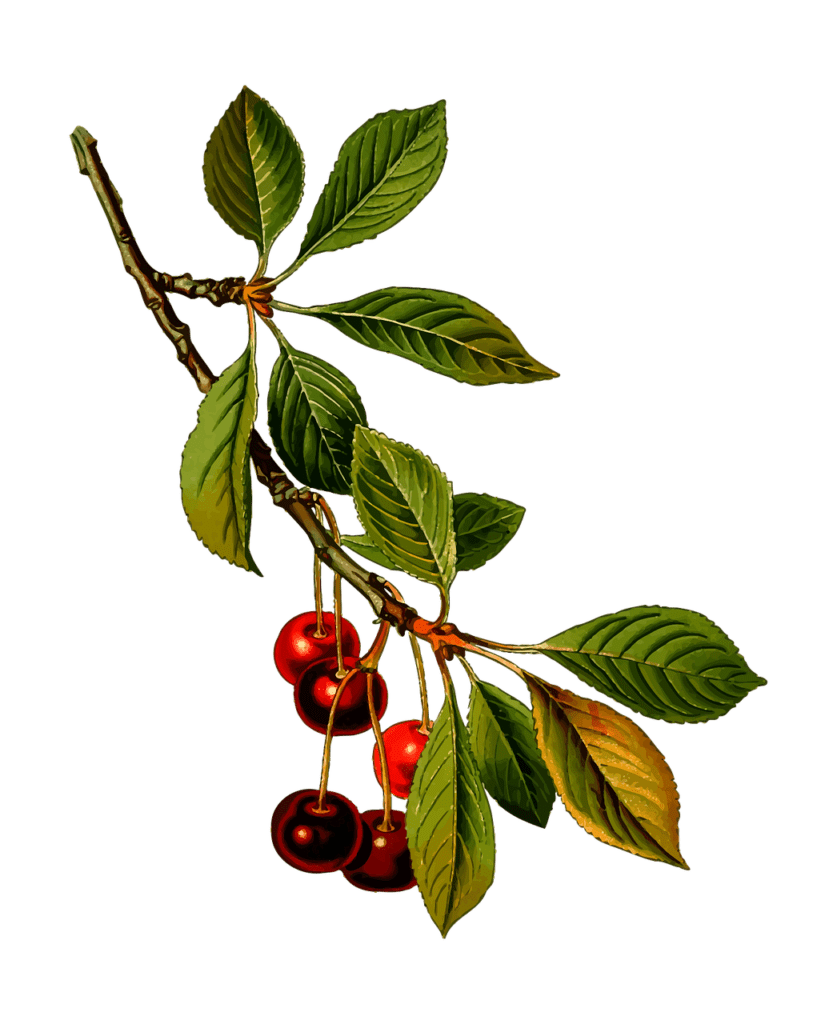Imagine a world where healing comes from the natural remedies found in the Earth itself – a world where plants, flowers, and herbs hold the key to restoring balance and well-being. In this captivating article, we explore the incredible healing power of herbal medicine. Discover the age-old wisdom passed down through generations, as we unveil the secrets behind the potent healing properties of these remarkable plants. Let the soothing scent of lavender, the invigorating taste of peppermint, and the calming effects of chamomile transport you into a realm of ancient wisdom and natural healing. Join us on this journey as we unlock the remarkable potential of herbal medicine.
Understanding Herbal Medicine
What is herbal medicine?
Herbal medicine, also known as herbalism or botanical medicine, is a practice that utilizes plants and their extracts to promote health and treat various ailments. It is one of the oldest forms of medicine and has been used by different cultures around the world for thousands of years. Herbal medicine recognizes the healing properties of herbs and aims to harness their therapeutic benefits to support overall well-being.
Brief history of herbal medicine
Herbal medicine has a rich history that spans across civilizations and cultures. Ancient civilizations such as the Egyptians, Greeks, Romans, and Chinese have used herbal remedies for centuries. These early herbalists discovered the medicinal properties of plants through trial and error and passed down their knowledge through generations. The knowledge of herbal medicine was traditionally transmitted orally or through ancient texts, which documented the use of various herbs for specific conditions. Today, herbal medicine continues to evolve with modern scientific research and advancements in understanding the complex chemical composition of plants.
Benefits of Herbal Medicine
Natural and holistic approach
Herbal medicine takes a natural and holistic approach to healing, considering the body as a whole rather than focusing solely on eliminating symptoms. By utilizing the therapeutic properties of plants, herbal medicine seeks to restore balance and promote overall well-being. This approach acknowledges the interconnectedness of various body systems and aims to address the root causes of illness rather than just alleviating symptoms. Herbal remedies are believed to work synergistically with the body to support its innate healing mechanisms.
Minimal side effects
One of the key advantages of herbal medicine is its relatively low risk of side effects. Unlike synthetic pharmaceutical drugs, which can often have a long list of potential adverse effects, herbal remedies are generally well-tolerated when used properly. This is due to the fact that they are derived from natural sources and typically have a gentler impact on the body. However, as with any form of medicine, it is important to follow the recommended dosage and consult with a qualified herbalist or healthcare provider for proper guidance.
Promotes overall well-being
Herbal medicine not only aims to treat specific health conditions but also promotes overall well-being. Many herbs used in traditional herbal medicine have adaptogenic properties, which means they help the body adapt to stress and restore balance. This holistic approach to health recognizes that optimal well-being is not just the absence of disease but also the enhancement of vitality, mental clarity, and emotional well-being. Herbal remedies can be used to support and optimize various aspects of health, from immune function and digestion to sleep and mental well-being.


Commonly Used Herbal Remedies
Echinacea
Echinacea, also known as purple coneflower, is a widely used herb in herbal medicine. It is known for its immune-enhancing properties and is commonly used to prevent and treat the common cold and other respiratory infections. Echinacea stimulates the immune system, helping the body fight off infections more effectively. It can be taken in various forms, including tinctures, teas, capsules, or standardized extracts. However, individuals with autoimmune conditions should exercise caution and consult with a healthcare professional before using echinacea.
Ginger
Ginger is a versatile herb that has been used for centuries in herbal medicine. It is well-known for its digestive benefits and is often used to alleviate nausea, indigestion, and motion sickness. Ginger has anti-inflammatory properties as well, making it useful for reducing pain and inflammation associated with conditions such as arthritis. Additionally, ginger has been shown to support cardiovascular health and boost the immune system. It can be consumed as a tea, added to meals, or taken in supplement form. Pregnant individuals should consult with their healthcare provider before using ginger.
Garlic
Garlic is not only a delicious culinary ingredient but also a powerful herbal remedy. It has been used for its medicinal properties for thousands of years. Garlic is well-regarded for its antimicrobial, antiviral, and immune-boosting properties. It can help fight off infections, reduce blood pressure, lower cholesterol levels, and support cardiovascular health. Additionally, garlic has antioxidant properties, which can help protect against cellular damage caused by free radicals. Garlic can be consumed raw, cooked, or as a supplement, but individuals taking blood-thinning medications should exercise caution and consult with their healthcare provider.
Management of Specific Health Conditions
Insomnia
The use of herbal medicine can be beneficial in managing insomnia, a common sleep disorder. Certain herbs, such as valerian root, passionflower, and chamomile, have calming properties that can promote relaxation and improve sleep quality. Valerian root, in particular, has been shown to have sedative effects and can help individuals fall asleep faster and improve sleep duration. Herbal remedies for insomnia are typically consumed as teas or tinctures, and it is important to follow the recommended dosages for optimal results. Individuals with underlying medical conditions should consult with a healthcare provider before starting any herbal treatment for insomnia.
Digestive disorders
Herbal medicine offers a range of remedies for various digestive disorders, including indigestion, bloating, and irritable bowel syndrome (IBS). Peppermint, chamomile, and ginger are commonly used herbs for soothing and supporting digestive health. Peppermint has been shown to relax the muscles of the gastrointestinal tract, relieving symptoms such as abdominal pain and bloating. Chamomile has anti-inflammatory properties and can help reduce inflammation in the digestive system. Ginger, as mentioned earlier, aids digestion and alleviates nausea. These herbs can be consumed as teas, capsules, or added to meals, and it is important to choose the appropriate form and dosage based on individual needs and preferences.
Anxiety and stress
Herbal medicine can also play a role in managing anxiety and stress, promoting relaxation and emotional well-being. Herbs such as lavender, lemon balm, and ashwagandha have calming properties that can help reduce anxiety symptoms and promote a sense of tranquility. Lavender has been shown to have anxiolytic effects, reducing feelings of anxiety and promoting relaxation. Lemon balm has a mild sedative effect and can help uplift mood and reduce stress. Ashwagandha, an adaptogenic herb, helps the body cope with stress by regulating cortisol levels. These herbs can be consumed as teas, tinctures, or taken in supplement form. However, it is important to consult with a qualified herbalist or healthcare provider for proper guidance and to ensure compatibility with any existing medications.


Preparation and Administration of Herbal Medicine
Tinctures
Tinctures are concentrated herbal extracts made by soaking herbs in alcohol or a combination of alcohol and water. This method allows for the extraction of the active compounds in the herbs and enhances their potency. Tinctures are typically administered orally, either by adding a few drops to water or taken directly under the tongue. They are a convenient and effective way of delivering herbal medicine, as the concentrated form allows for better absorption. However, it is important to follow the recommended dosage and consult with a qualified herbalist to ensure appropriate usage.
Teas
Herbal teas are a popular and soothing way to consume herbal medicine. They are made by steeping herbs in hot water, allowing the active compounds to infuse into the liquid. Herbal teas can be especially beneficial for digestive issues, sleep problems, and relaxation. To prepare an herbal tea, simply add the desired herbs to a cup of boiling water, cover, and steep for the recommended duration. Strain the tea and drink it while it is still warm. Herbal teas can be customized by combining different herbs to create a blend that addresses specific health concerns. However, pregnant individuals should exercise caution and avoid certain herbs that may not be safe during pregnancy.
Capsules
Capsules are another convenient and easily accessible way to take herbal medicine. They contain powdered herbs in a pre-measured form, allowing for accurate dosage and ease of administration. Capsules are especially useful for herbs with a strong taste or smell, as they can be swallowed without the need to taste them directly. They are also a convenient option for individuals who prefer a standardized dosage. Capsules can be purchased from reputable brands or prepared by qualified herbalists. It is important to follow the recommended dosage and consult with a healthcare provider or herbalist to determine the most appropriate form and dosage for individual needs.
Safety and Considerations
Interactions with medications
It is important to note that herbal medicine can interact with certain medications. Some herbs may enhance or inhibit the effects of pharmaceutical drugs, potentially leading to undesirable outcomes. It is crucial to inform healthcare providers about any herbal remedies being used to ensure the safe and effective management of health conditions. Individuals taking medications for chronic illnesses, such as diabetes or heart disease, should exercise caution and consult with a healthcare provider or qualified herbalist before introducing herbal remedies into their treatment plan.
Pregnancy and breastfeeding
Pregnant and breastfeeding individuals should exercise caution when considering herbal medicine. Some herbs may have contraindications or potential risks during pregnancy and lactation. It is advisable to consult with a healthcare provider who is knowledgeable about herbal medicine to ensure the safety of both the mother and child. While some herbs, such as ginger and chamomile, are generally considered safe for use during pregnancy, others should be avoided or used under the guidance of a healthcare professional.
Quality and standardization
The quality and standardization of herbal remedies vary greatly among products and brands. It is important to choose reputable sources and brands that adhere to good manufacturing practices and provide accurate information about their products. Look for products that have been third-party tested for purity and potency. Additionally, it is recommended to consult with a qualified herbalist or healthcare provider who can guide you in selecting high-quality herbal remedies and dosages that are appropriate for your specific needs.


Herbal Medicine and Scientific Research
Current research findings
Scientific research on herbal medicine has been growing in recent years, shedding light on the efficacy and safety of various herbs. Numerous studies have investigated the therapeutic effects of herbs for specific health conditions, providing evidence for their traditional uses. For example, research has shown that echinacea can help reduce the severity and duration of the common cold when taken at the onset of symptoms. Ginger has been found to be effective in reducing nausea and vomiting associated with chemotherapy and pregnancy. Garlic has been extensively studied for its cardiovascular benefits, showing positive effects on blood pressure and cholesterol levels.
Challenges in herbal medicine research
Despite the growing body of research on herbal medicine, there are still challenges that need to be addressed. One of the main challenges is the lack of standardized research methodologies for studying herbal remedies. The complex chemical composition of herbs makes it difficult to isolate and study specific active compounds. Additionally, funding for herbal medicine research is often limited compared to pharmaceutical research. However, efforts are being made to enhance research methodologies and establish standardized guidelines for studying herbal medicine, ensuring rigorous scientific investigation in the field.
Choosing and Working with a Herbalist
Qualifications and experience
When seeking guidance from a herbalist, it is important to ensure that they have the necessary qualifications and experience in herbal medicine. Look for individuals who have completed formal training and are certified or registered with reputable herbal medicine organizations. A qualified herbalist should have a deep understanding of herbal remedies, their therapeutic properties, and their interactions with the body. They should also have a comprehensive knowledge of the human anatomy and physiology, as well as an understanding of potential contraindications and safety considerations.
Communication and trust
Effective communication and a trusting relationship are essential when working with a herbalist. A skilled herbalist should take the time to listen to your concerns, ask relevant questions about your health history, and gather detailed information about your symptoms. They should provide clear explanations about the recommended herbal remedies, their potential benefits and risks, and any necessary lifestyle modifications. Building trust and open communication with a herbalist allows for a more personalized and effective treatment plan tailored to your individual needs and preferences.
Legal and Regulatory Considerations
FDA regulations
In the United States, the Food and Drug Administration (FDA) regulates herbal remedies under the category of dietary supplements. Herbal products are subject to the regulations and guidelines set forth by the FDA, including labeling requirements, good manufacturing practices, and safety considerations. However, it is important to note that herbal remedies do not undergo the same level of rigorous testing and evaluation as pharmaceutical drugs. This highlights the importance of informed decision-making and consulting a qualified herbalist or healthcare provider when considering the use of herbal medicine.
Labeling and marketing guidelines
To ensure consumer safety and transparency, herbal remedies are required to comply with specific labeling and marketing guidelines. Products should provide accurate information about the ingredients, dosage instructions, and potential side effects. Labels should also include information about the manufacturer, batch numbers, and expiration dates. Additionally, herbal products cannot make unsubstantiated claims or exaggerate their efficacy. Responsible herbalists and manufacturers adhere to these guidelines and provide clear and accurate information to consumers.
Conclusion
Herbal medicine offers a natural and holistic approach to health and well-being. It has a long history of traditional use and continues to be a popular choice for individuals seeking alternative options for managing various health conditions. The benefits of herbal medicine include its natural and holistic approach to healing, minimal side effects, and promotion of overall well-being. Commonly used herbal remedies, such as echinacea, ginger, and garlic, have proven therapeutic properties. However, it is important to consider safety considerations, such as interactions with medications and pregnancy/breastfeeding guidelines. Working with a qualified herbalist can provide personalized guidance and ensure a well-informed approach. While herbal medicine continues to be the subject of scientific research, challenges and limitations in research methodologies exist. In navigating the world of herbal medicine, it is crucial to prioritize quality, standardization, and adherence to legal and regulatory guidelines. Ultimately, the power of herbal medicine lies in its ability to harness nature’s healing properties and support the body’s inherent ability to heal and thrive.



